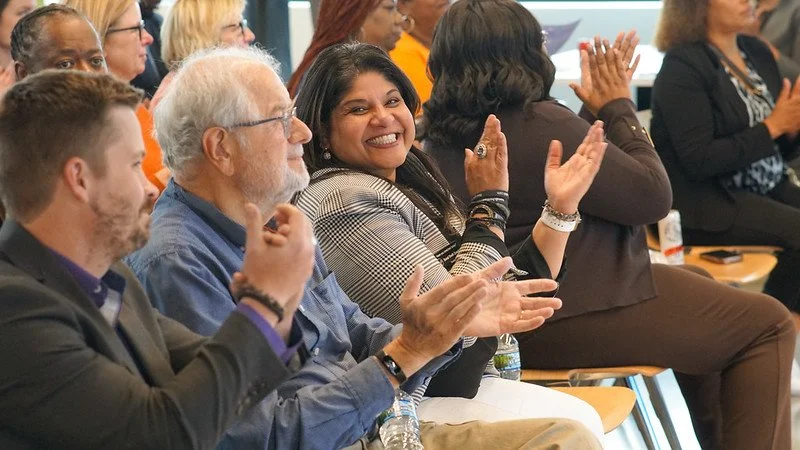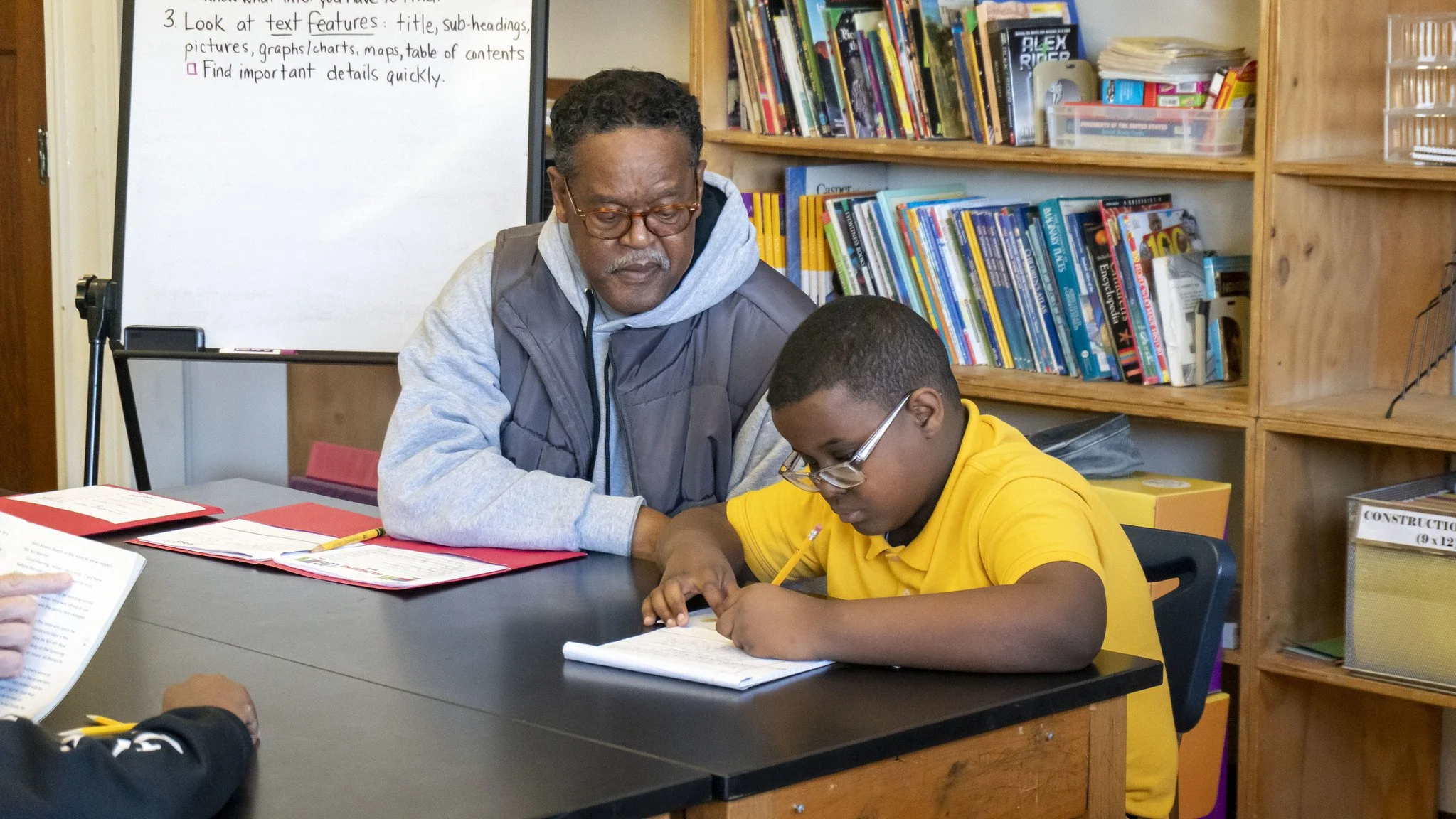Today, more than 244,000 families in our community are living in, or one emergency away from, poverty, and that figure continues to grow in our seven-county region.
During the last year and a half as we’ve been building a new strategic plan, United Way has conducted research, facilitated discussions and collected input from community partners, funders, academic experts, community-based organizations, neighbors with lived experience, grantees and other peer organizations to determine how we can best support individuals and families moving out of poverty.
Poverty – especially as it repeats from generation to generation – is an extremely complex and stubborn problem exacerbated by systemic inequalities like race and gender. Poverty is not just a lack of income. For individuals and families, living in poverty can encompass daily stress, physical and emotional pain, illness, trauma and a lack of equal opportunity that cycles from one generation to the next.
United Way is a unique player in our community who brings the resources of philanthropy, government, corporations, the social sector and neighborhoods together to confront intergenerational poverty head on, and ensure a better future for our neighbors in need.
To reduce the number of Central Indiana households experiencing financial instability, United Way will concentrate our efforts on four issues essential to eliminating poverty in our community.
to provide essential services to our neighbors in need
to increase literacy outcomes and learning success for young children
to increase earnings and build employment pathways
to increase housing security and reduce homelessness
United Way will build on the successes of our Family Opportunity initiatives by investing in partners working alongside 10,000 households to increase earnings and enhance well-being.
To fully execute on this plan, United Way must continue to build on the expertise of our team, and commit to strategies that diversify our revenue to increase our impact investments.
However, we are more than just fundraisers.
We build, lead and support coalitions advocating for public policies at the local, state and federal level.
We equip nonprofit partners with the resources, training and technology to optimize their impact.
We convene funders and collaborate with direct service providers to pilot and scale new interventions to distance individuals and families from poverty.
We research and use data to pinpoint our community’s specific needs, listen to community voices, prioritize investments and resources, and report outcomes.
We implement programs in direct response to community needs and opportunities.
We invest in partner nonprofits to help them do what they do best – serving individuals and families in need.
To grow our role as a trusted community organization who improves outcomes in reducing poverty, United Way will lead with our values to be a community-minded, inclusive, impact-focused, and transparent partner.
Together, we’re committed to the following objectives and initiatives to achieve our goals.
Ensure equity and diversity in the availability and accessibility of resources across Central Indiana; intentionally seek diverse perspectives and reflect them in all aspects of our work.
Further diversify the family of organizations who have access to our support
Identify gaps in services for the BIPOC population, and in counties across our seven county region and proactively seek out new partners to fill those gaps
Strengthen relationships with organizations, particularly BIPOC-led and those located outside Marion County, who focus on addressing barriers that align with our impact strategy, and actively invite them to seek grant-funding from us
Develop targets to ensure we are investing differentially in under-resourced communities across our impact approach
Create positive outcomes through innovative, data driven programming; adapt and respond to changing environments; continuously learn, grow and improve.
Streamline and simplify processes (e.g., grant applications, accreditation) for organizations seeking and accessing our funding and support
Develop opportunities to support organizations who are not accredited
Expand grantmaking to include some multi-year grants to support grantees to achieve long term outcomes
Continue to leverage the skills of our team to share our data with community partners to support their work and fundraising
Build capacity for the sector to strengthen connections to content expertise and organizational development opportunities
Partner with community and systems level stakeholders to achieve greater impact by scaling and sustaining efforts and supporting policy-based solutions to strengthen or expand services.
Collaborate on impact strategies and co-develop approaches with corporate, philanthropic and government partners
Convene local funders around aligning data and reporting requested from grantees
Increase our advocacy efforts to support long-term outcomes and funding for the sector
Listen to community voice, serve the community’s needs, and elevate community assets and opportunities.
Regularly listen to, and incorporate, feedback from community partners
As needed, where there lack sufficient interventions, deploy innovative programs and initiatives in collaboration with the community that leverage our strengths to achieve impact
Continue to foster opportunities for knowledge sharing, thought leadership and convening among interested stakeholders
Develop unique impact approaches in all seven counties we serve to ensure we are having an impact on rural, urban, and suburban poverty
Present a clear, honest representation of our organization, our work, and our goals; operate with a high level of accountability; address challenges swiftly and directly when they arise.
Work with community partners to ensure reporting requirements are feasible, mutually beneficial, and align with our updated impact goals
Develop a plan to regularly bring together peers to discuss learnings and best practices across the two-generation approach, economic mobility, safe and affordable housing, and early care and learning
Regularly communicate impact through storytelling, research and evaluation of our impact investments
Continue to track the types of organizations we support and the constituents they serve to ensure we are meeting our targets
Regularly update and share Impact United dashboards and reporting summaries with community partners











